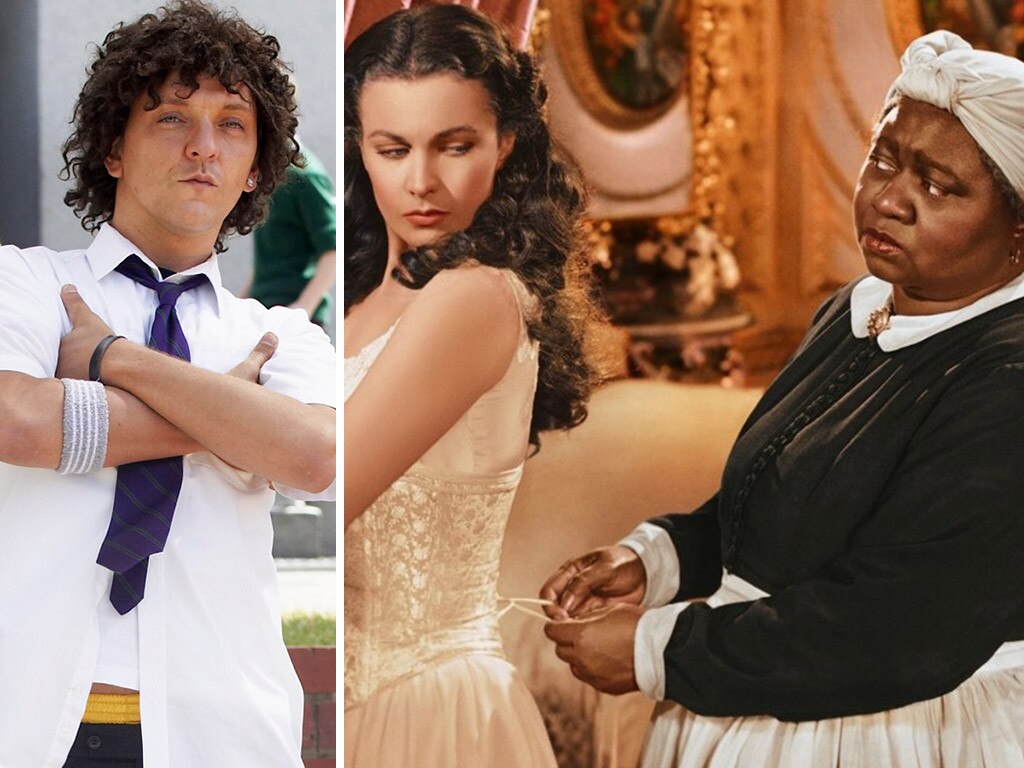
The movie is four hours long, a failure of editing we would not see again until 1984 when executives at Alan Ladd’s production company furrowed their brows and wondered what to do with Sergio Leone’s Once Upon Time In America which the spaghetti western producer had delivered over time and over budget at just a tick over nine hours long.
Frankly, I don’t know how I survived it. My memory is that alcohol was my friend.
The 1939 film won eight Academy Awards, including best picture, best director (Victor Fleming), best actress (Vivien Leigh) and, unbelievably, best editing. It is by the sum of box office receipts, sale of rights to stream, duplicate for sale and/or hire, the biggest grossing movie in history.
HBO Max, one of the litany of streaming services available to Americans, has taken Gone with the Wind off its list, as part of what is currently, almost interminably known as our history wars. The argument goes that this is another case of history being sanitised and rewritten.
I have news for you. History is constantly being rewritten and not just by its winners. Gone with the Wind, the long, ponderous historical romance which trivialises slavery and glorifies an antebellum South that hankered for war on the worst possible grounds, cast some of history’s most amoral losers as charming victims of fate, subject to vicious forces beyond their ken.
One of the grandest scenes in the film is the burning of Atlanta which oddly the writers depicted as having been started by marauding locals with Rhett referring to the ‘lads’ having started a fire in a downtown warehouse that he knew to be full of explosives as he fled with Scarlett in his arms.
Oh, woe begotten southerners of privilege and wealth under attack from vicious, anonymous mobs. What was the world coming to in 1864?
I know it’s fiction. It’s romantic fiction which is even worse but if you looked at Gone with the Wind in an historical vacuum, you’d be inclined to think that Rhett and the O’Haras and the Hickmans and the Hamiltons were the good guys rather than being complicit members of the most vile sociopolitical system seen since the Golden Mongol Horde with the notable exceptions of the Belgians in the Congo and the British in Jamaica.
They are at least a representative fictional group of the sorts of people who have streets, parks and even military bases in their names with statues bearing their images who collectively were responsible for the deaths of 360,000 loyal US soldiers.
The truth is always more fascinating than fiction. The reality is more compelling and frankly I think it would make a hell of a film.
Atlanta burned at the hands of the Union Army under the command of William Tecumseh Sherman and it burned because it had to.
There were strategic imperatives. Sherman could hardly take his 62,000 strong army on The March to the Sea and the capture of the Confederate port of Savannah with Atlanta’s rail network still in place to his rear. That was unthinkable.
When Atlanta fell to the Union on September 2, 1864, a captain delivered a letter penned by Confederate Major-General Henry Slocum beseeching Sherman to provide “protection to non-combatants and private property.”
Sherman declined. He gave his reasons in a letter to the Mayor of Atlanta, which reads in part, “War is cruelty and you cannot refine it, and those who brought war into our country deserve all the curses and maledictions a people can pour out. I know I had no hand in making this war, and I know I will make more sacrifices to-day than any of you to secure peace. But you cannot have peace and a division of our country.”
News of the fall of Atlanta was greeted with joy in the North. It was perhaps the most influential factor in the re-election of Abraham Lincoln in November of that year. Lincoln’s opponent, the Democrat and failed Union general, George McLellan argued for the military defeat of the Confederacy but many within his party favoured a truce and a negotiated peace. Lincoln won in a landslide.
While Lincoln bemoaned the extraordinary loss of life, Sherman understood that the Civil War had not just to be won but the amoral ideology that had driven the Confederacy had to be crushed. “We can make war so terrible,” Sherman said, “And make [the South] so sick of war that generations will pass away before they again appeal to it.”
He had discussed the strategy, sometimes called Scorched Earth, sometimes Total War with Ulysses S Grant. The aim was to move quickly and destroy infrastructure, railways, plantations, to as Sherman said, “make Georgia howl.”
There were no massacres. There were few civilian casualties. But Sherman’s Army, separated and created a front 30 kilometres wide and swept everything before them, destroying railroads, burning plantations, grabbing food, staying mobile before they took Savannah.
Before the Confederacy had fired the first shots, seized property, bombed forts and killed their own countrymen, Sherman was based in Louisiana. He predicted what would happen to the South if it left the Union and took up arms with such extraordinary accuracy that it needs to be repeated.
From the heart of New Orleans and with sabres rattling around him, Sherman had warned them, “You are bound to fail. Only in your spirit and determination are you prepared for war. In all else you are totally unprepared, with a bad cause to start with. At first you will make headway, but as your limited resources begin to fail, shut out from the markets of Europe as you will be, your cause will begin to wane. If your people will but stop and think, they must see in the end that you will surely fail.”
The Rhett Butlers of the Confederacy chose instead to fight for the right to own people, to enslave them and subject them to unspeakable cruelty, all in the name of greed. Yet, a film like Gone with the Wind has helped create the perception that exists to this day of moustache twirling gallants dashing off to fight a war against the odds with their grinning slaves urging them on in the background.
For all that, do I think the Gone with the Wind should be cast into a pit, never to be seen again? No. It should be watched and studied alongside real history and held up as an example of fiction seeking to replace historical fact to evoke mawkish sentiment where nothing but condemnation is warranted.
It is four hours, so you might want to hit fast forward a bit.







I was a reluctant viewer of Gone with the Wind. Historical romances are really not my thing. I assiduously avoided it for years until I fell into watching it on of its many repeats on television some years ago.